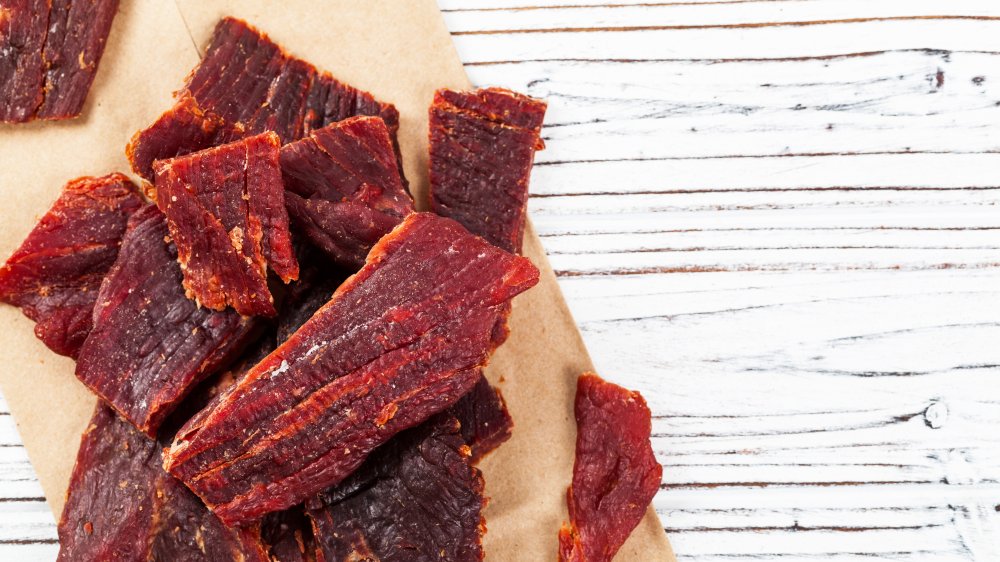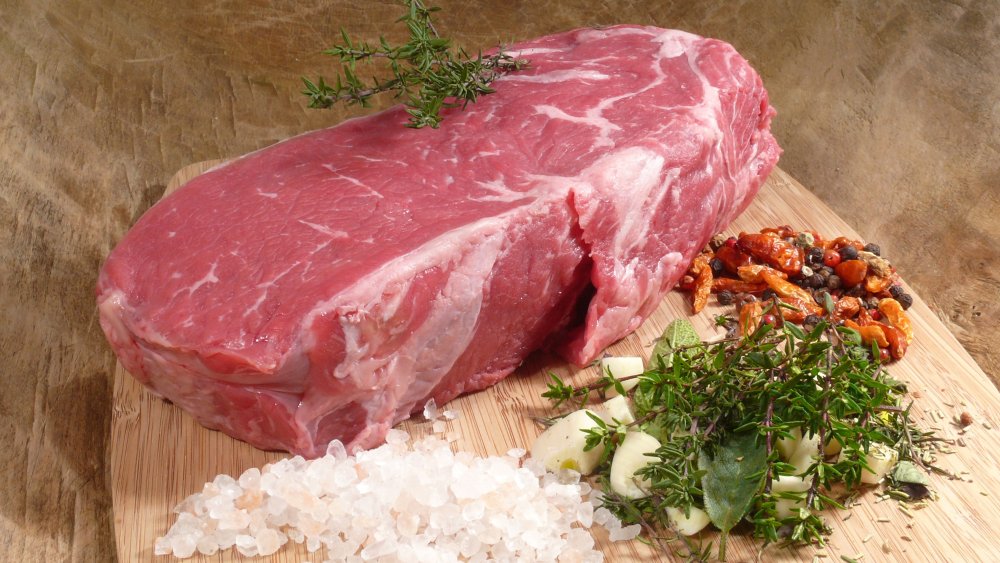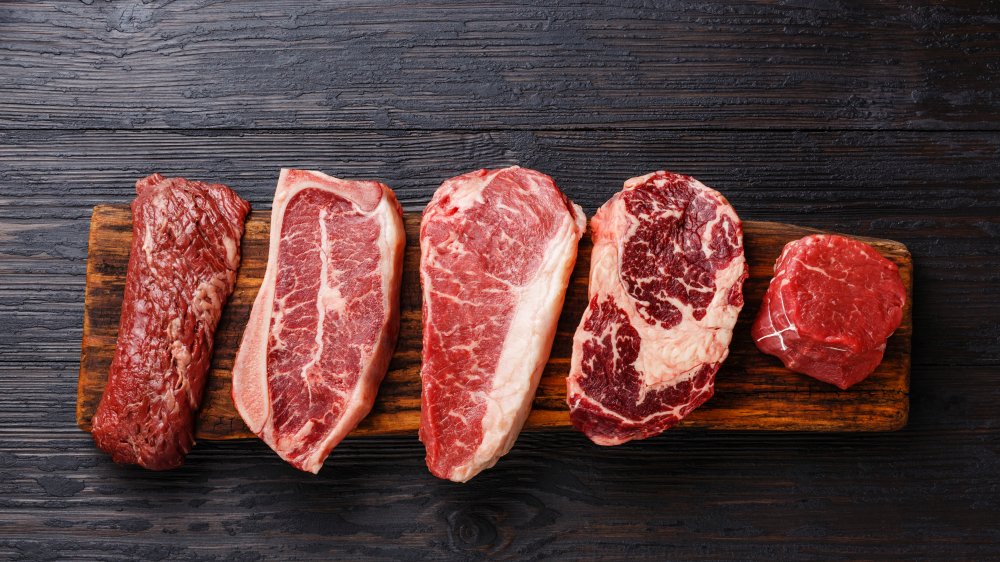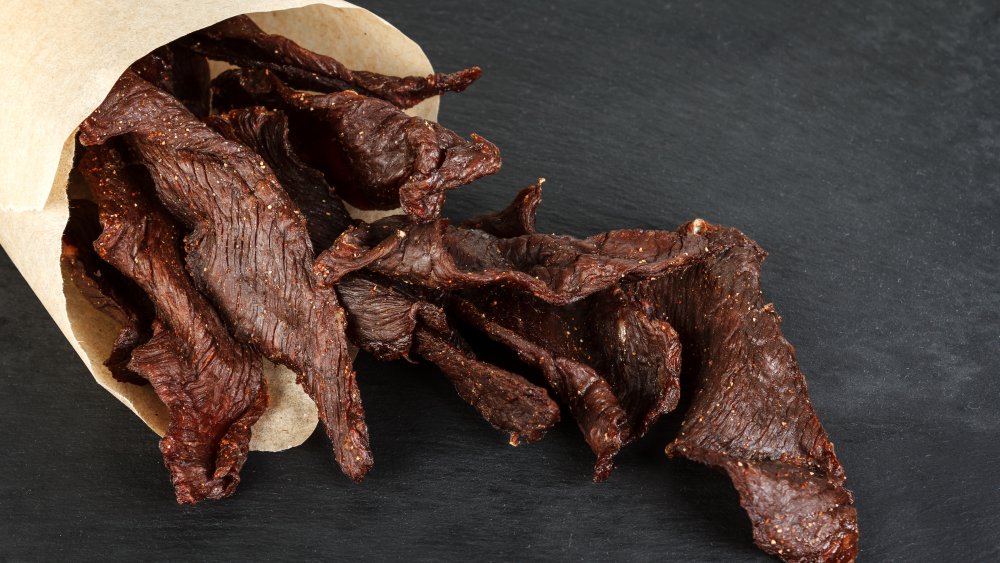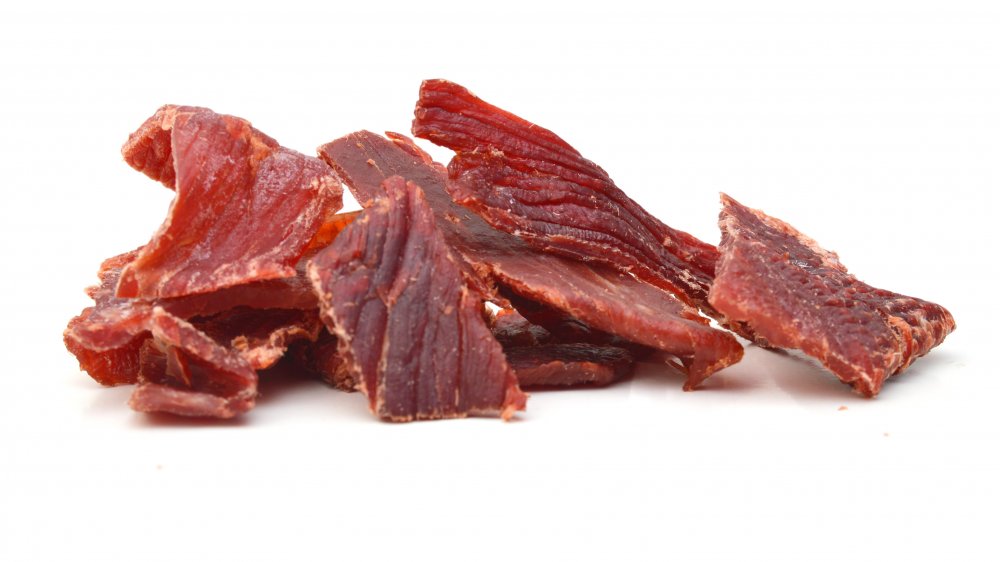Why Is Beef Jerky So Expensive?
For meat-eaters, a well-made piece of beef jerky is truly a delicious treat. Unfortunately, it often doesn't come cheap. Okay, yes, you can get a Slim Jim for a pretty cheap price, but a high-quality beef jerky product? Good luck! Even more disheartening for beef jerky fans is that after shelling out sometimes $10 bucks for a bag at the gas station, there's often not all that much beef jerky in the bag.
This can make for some pretty frustrated snacking, but good beef jerky is hard to say no to — even if it is expensive. Why exactly is beef jerky so expensive, and are people really getting what they pay for?
It's all about the cost of the beef
Beef jerky fans will be happy to know that the beef jerky industry isn't in cahoots to ripoff the everyday consumer. The major reason that jerky is often so expensive is that it really isn't the cheapest food to make. It's actually pretty pricey when it comes down to it, and a large percentage of that cost is the beef itself.
Producing beef costs significantly more than pork or chicken, and requires about 10 times the number of resources (via Smithsonian Magazine). Everything from the land to the grain to the water is a factor, and makes cows costlier to raise than other livestock. There's also the aspect of beef's popularity with American consumers. Chicken is more popular today, but it wasn't always that way, and this has led to a lot of competition that has raised beef prices overall (via R-Calf USA). People might not opt for beef as much as chicken, but when they do, they're paying considerably more for it.
Better beef makes for better jerky
According to The Wall Street Journal, beef prices aren't just rising in the United States, but around the globe as well. The global rise in beef prices might seem unrelated to the small jerky brand in your home state, but it's also the kind of beef used in the jerky. There's a reason $8 jerky taste better than $1 jerky — it's made with better cuts of meat.
According to jerky brand Mountain America Jerky, the best jerky is made with lean cuts of beef, usually top and bottom rounds, because they provide a lot of flavor and good texture. They also tend to cost significantly more than some fatty beef scraps.
As Money Inc. points out, certain cuts are also limited in supply. You can get a lot more tripe out of a cow than you can tenderloin — but tripe jerky isn't a big seller in the United States. Beef is really only one of the factors for your pricy jerky, though, and there are certainly other costs to consider.
Making the jerky is also pretty expensive
Good things take time, and in the case of beef jerky, they also take a lot of resources. Lawless Jerky shared on Reddit that everything from the packaging to shipping, labor costs, spices, and preservatives add up. "We import crazy spices from all over the world and use top-quality all-natural ingredients." Yes, you can make beef jerky at home in your oven, but that's probably not how your favorite jerky brand is making their magical meat.
Mountain America Jerky, for example, says that it takes them three days to produce a small batch through the smoking process. They could go for a cheaper and quicker method and use a commercial dehydrator, but as they put it, this wouldn't result in perfectly delicious "meat licorice." Mmmm.
Perhaps what it comes down to, is do you want your beef jerky cheap or do you want it done right?
The beef jerky shrinkage issue
We know that the cut of beef, labor, and materials all play a part, but one thing that a lot of people might not consider is the issue of shrinkage. Those tender little bites of beef jerky didn't start out so small. Yes, your 4-ounce bag of jerky might seem rather tiny for $8, but it still has $8 worth of beef in it that simply shrank during the drying process.
The whole point behind curing meat is to dry it out to prevent the meat from spoiling, and that drying process removes water — a lot of water. On Big John's Jerky website, they explain that the beef they use is around 60 percent water, and the final result always weighs less than the beef they started with. Essentially, around 2.5 pounds of beef is only going to yield around a pound of jerky.
A $10 bag of beef jerky might not be as full as you would like, but at least you know that the jerky industry isn't jerking you around when it comes to how they make their product and price they sell it at.
